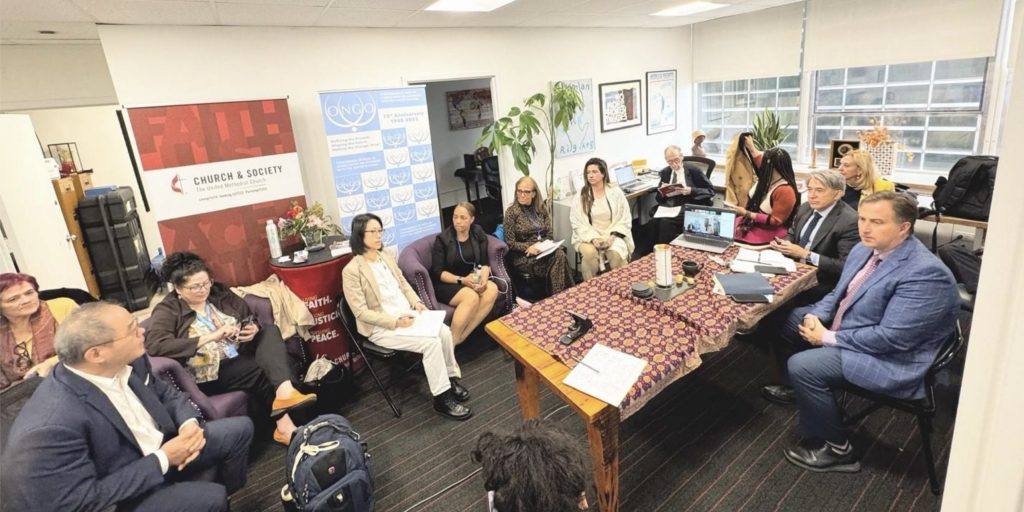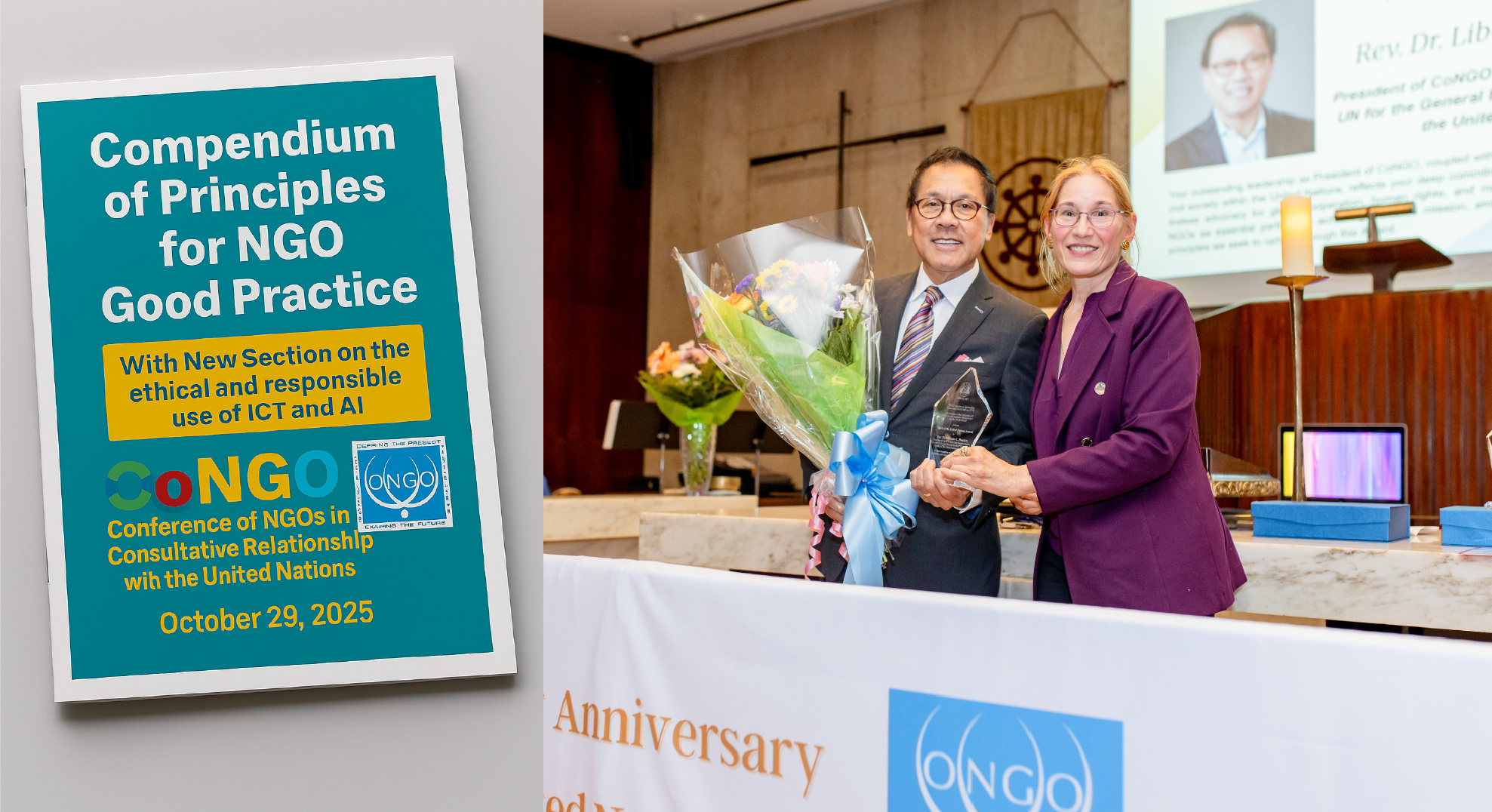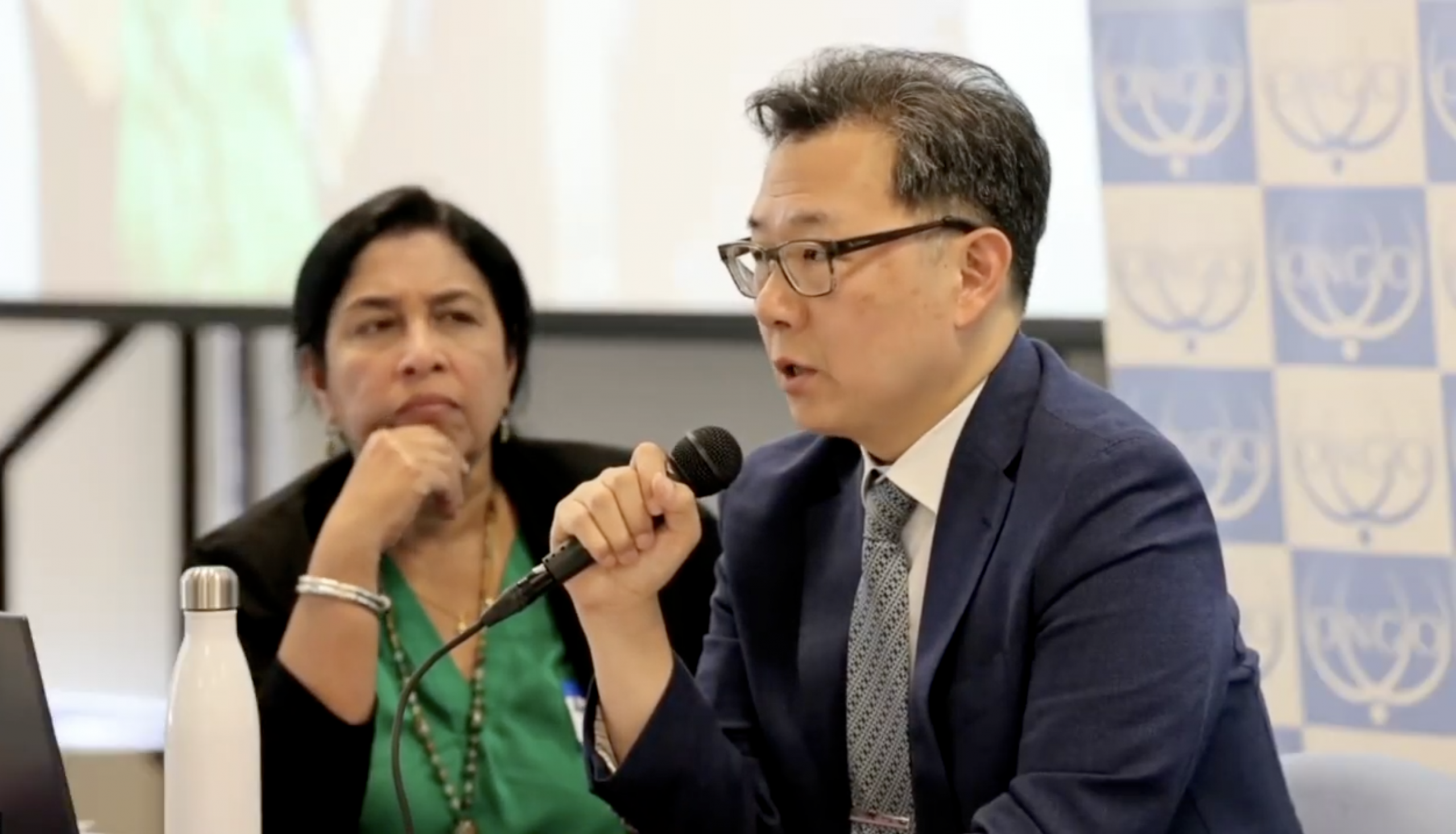President Bautista will hold conversations with Garry Jacobs, Ketan Patel, and Jesselina Rana at the CoNGO General Assembly

The Twenty-Eighth General Assembly of the Conference of NGOs in Consultative Relationship with the United Nations will receive a different kind of presidential report from its president, Liberato Bautista. The first part will be a conversation around the three-part theme of the assembly: Defining the Present, Securing a Shared Future, Asserting Civil Society Participation at the United Nations.
The presidential report, scheduled for mid-morning on October 28, 2025, will start with Bautista in discussions including Garry Jacobs, the President and CEO of the World Academy of Art and Science and the World University Consortium; Ketan Patel, Chairman of Force for Good and co-founder and CEO of Greater Pacific Capital; and Jesselina Rana, a human rights lawyer and feminist activist who serves as a United Nations Advisor at the New York Hub of CIVICUS.
In a preview of the conversation between Bautista and Jacobs on the first part of the assembly theme—Defining the Present—Jacobs shared these thoughts:
“Humanity has reached an unprecedented transition point in history. The multidimensional crises we face reflect the need for radical changes in our political, economic, and social policies; in national and international institutions; in the theories on which our political, economic, and financial systems are functioning; in the fragmented, silo-based education being imparted to youth; and in the reductionist, objectivist mode of dualistic thinking that governs our actions.
“None of these crises can be effectively addressed by individual nationals for themselves on the basis of prevailing policies, institutions, theoretical frameworks and the thinking on which they are based. The uncertainty, insecurity, instability and violence currently spreading the world are symptoms of a phase of global turbulence that cannot be effectively addressed by the haphazard, subconscious, trial and error process of competitive global social change that has characterized human development up to now.
“We have reached a stage when conscious global collaboration is imperative to lead us through a process of social transformation founded on the principles peace, prosperity and human security for all. This transition requires leadership with a deeper knowledge of the process of global social evolution and the will to direct it, reconstituted institutions with the power and authority to act on behalf of all humanity, and civil society institutions dedicated to inspiring the global general public – especially youth — with the awareness, understanding and willingness to support it.”
In the discussion between Bautista and Patel on the second part of the assembly theme—”Securing a Shared Future”—Patel will emphasize the following points:
Today’s turbulence is a metacrisis reflecting a civilisational shift to the Information Age. Governance and leadership have faltered as ‘might is right’ is asserted, democracy levels have regressed to 1985, only 17% of SDG targets are on track, CO₂ emissions reaching 37.8 gigatonnes, and 3°C above pre-industrial levels are expected this century. War without rules grows with c.25% of Ukrainians and 90% of Gazans displaced. Meanwhile, global wealth nears US$700 trillion, while not meaningfully addressing development or climate.
A shared future requires the mass mobilisation of solutions to deliver progress. The world must build 260 million affordable homes, hundreds of thousands of schools, hospitals, renewable energy systems, and nearly 300,000 km of seawalls and more to do so. Yet blended finance in 2024 covered c.0.1% of SDG needs. Addressing the world’s issues requires risks to be transformed, allowing solutions to reach every corner of the world.
Civil society must be central to this transformation. Given c.700 million people and c.15-20% of Americans and Europeans live in extreme poverty or vulnerability. Given that c.6,300 NGOs hold ECOSOC consultative status, as multilateral leadership weakens, civil society’s scale, legitimacy, and reach are vital to create a secure, sustainable, and superior future for all.
In the third part of the assembly theme—”Asserting Civil Society Participation at the United Nations”—Rana will discuss these reflections with Bautista.
“As the United Nations enters its ninth decade, restoring trust in multilateralism depends on bringing people, not just states, back to the center of global decision-making. Civil society participation is not an add-on to diplomacy; it is essential to achieving peace, human rights, and sustainable development. Article 71 of the UN Charter recognized this eight decades ago, yet today’s multilateral processes remain overwhelmingly state-centric, often shutting out the very actors who give life to ‘We the Peoples.’
“Restricting civic space and excluding civil society weakens the UN’s legitimacy and effectiveness. Around the world, more than 70 percent of people live in countries where freedoms of expression, association, and assembly are under threat, and these restrictions are increasingly mirrored in international spaces. When defenders are silenced, abuses go unchecked and the rules-based international order erodes.
“To strengthen multilateralism, the UN must guarantee meaningful participation of civil society across all processes, ensure protection for those who engage, and invest in the human rights pillar that safeguards civic freedoms. Civil society are not observers; they are equal partners in realizing the UN’s founding promise of a system accountable to people, grounded in human rights, and capable of delivering peace and justice for all.”
Want to join the conversation? There’s still time to register for in-person or online attendance.
Briefing papers on the three sub-themes were prepared by President Bautista and will be uploaded to this website in time for the Assembly.




